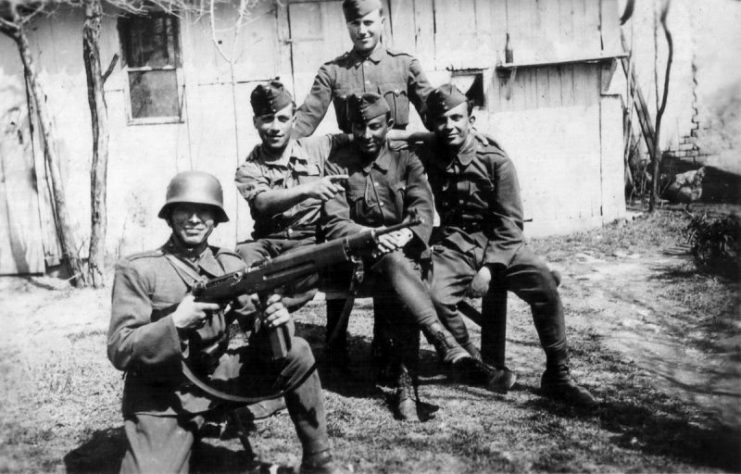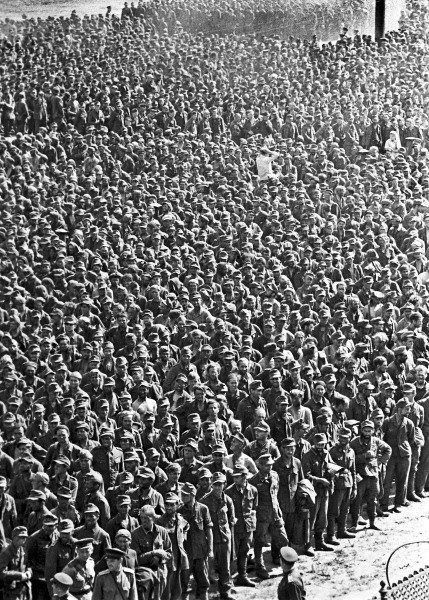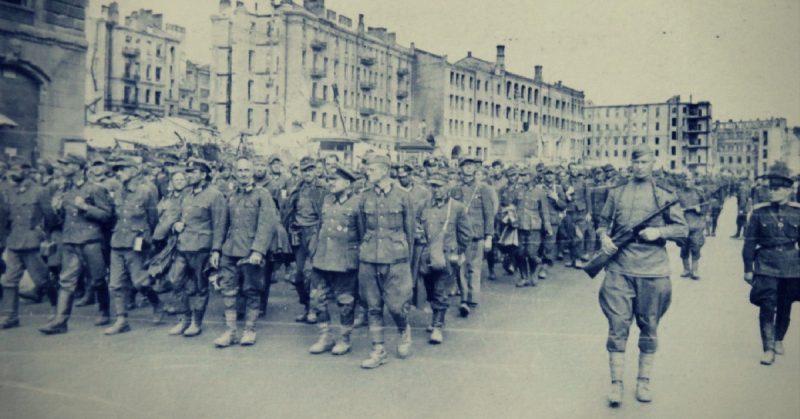The last WWII soldier to be repatriated from imprisonment indeed had a story to tell – and he waited 53 years to tell it! For more than half a century he spent most of his time in silence, without partaking in a single conversation. The reason was a language barrier.
The man in question was András Toma. He was a 19-year-old Hungarian soldier fighting near Krakow, Poland during the Soviet Vistula–Oder Offensive. As the Axis line collapsed, more than 147,000 soldiers became prisoners.
Captured by Soviet troops in January 1945, he was transferred to Boksitogorsk POW camp, near St. Petersburg. Toma spent most of the remaining months of the war as a POW.
Later, due to illness, he was transferred 1,000 km to the east, to the military hospital of another camp near the town of Bistrjag. But his journey was not over yet. When he had recovered from his illness in 1947, he was sent to a psychiatric hospital, located in Kotelnich. The small river-port town became the soldier’s home for the next 53 years.
This final transfer deleted Toma from the POW books, as admission to a sanatorium meant he was no longer a prisoner of war. It also resulted in the Hungarian government being unable to find out anything about his whereabouts.

In the commotion of the repatriation process immediately after the war, Toma was simply left out, or forgotten in the endless void of bureaucracy. In 1954, he was officially declared deceased.
During that time, the Hungarian soldier was keeping quiet in a Soviet psychiatric hospital. He was regarded by both the patients and the staff as an oddball, a mute or a person who had invented his own language, as Hungarian was completely unknown in the town of Kotelnich.
What remains fascinating is that during that period, Andras Toma never adopted the Russian language. As he was surrounded by people who did not understand Hungarian, his attempts to speak were dismissed as gibberish.
Although it sounds somewhat incredible, it is not so hard to understand how it happened. The Hungarian language belongs to a very small and specific group of languages called the Finno-Ugric group. Therefore his language, which does not originate from much larger groups such as the Romanic, Germanic or Slavic, could easily be perceived as non-existent by the mainly Russian population of Toma’s new hometown.
In the hospital, he was registered as Andras Tomas, under which name he was discovered in the year 2000, by a Slovak linguist who happened to come across him in Kotelnich.
On August 11, that same year, Toma was brought back to Hungary. He was 75 years old at the time. As he had spent most of his life in a psychiatric hospital, whether or not he was mentally sane was still a matter of discussion.

Through the results of a DNA analysis, his identity was confirmed and he was finally reunited with his half-sister Anna and brother Janos who were still living on a farmstead near their hometown of Nyiregyhaza in eastern Hungary. As well as his family, Toma was welcomed by his former classmates, who all rejoiced seeing him after so many years.
In gratitude for his ordeal, the Hungarian Ministry of Defense promoted him to the rank of sergeant-major and provided the soldier’s salary for all the years he had been absent, as his service had been continuous in the eyes of the law.
After his return, Andras Toma moved in with his half-sister Anna, who was assigned to be his caretaker. Four years after he returned to his homeland, Toma died of natural causes, aged 79.
His story has inspired hope for 82 other Hungarian families whose relatives disappeared in the turmoil of the war ― captured but never repatriated, those people’s whereabouts and fate still remain a mystery.
